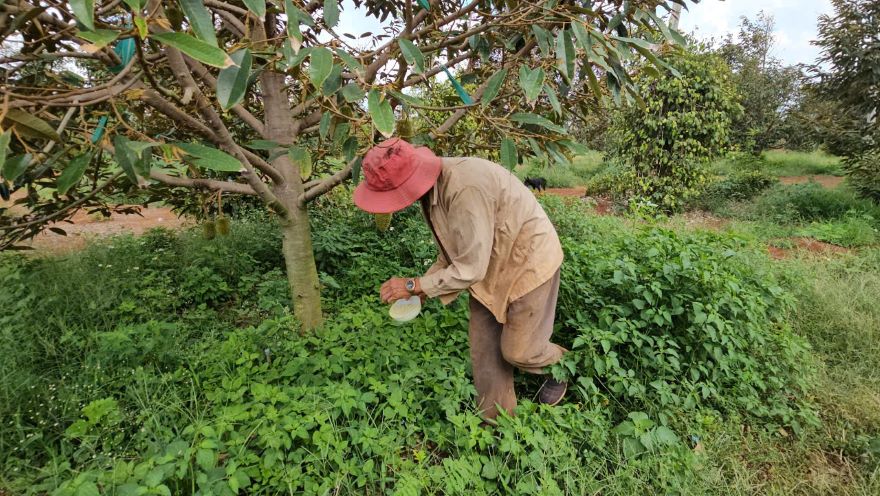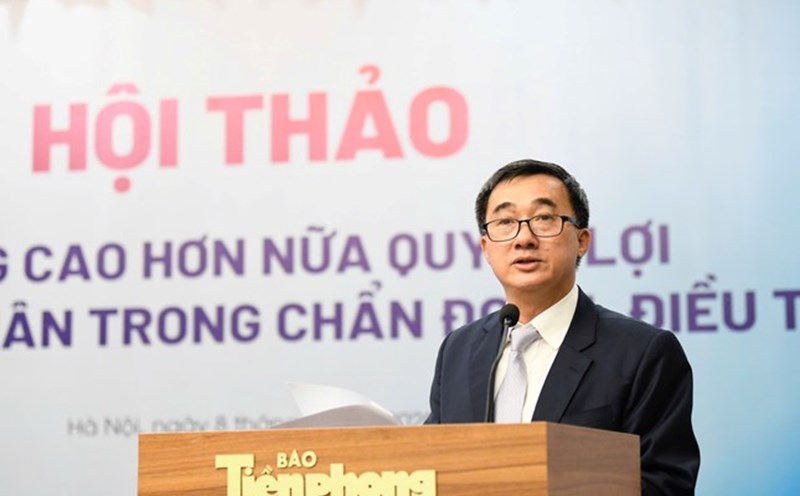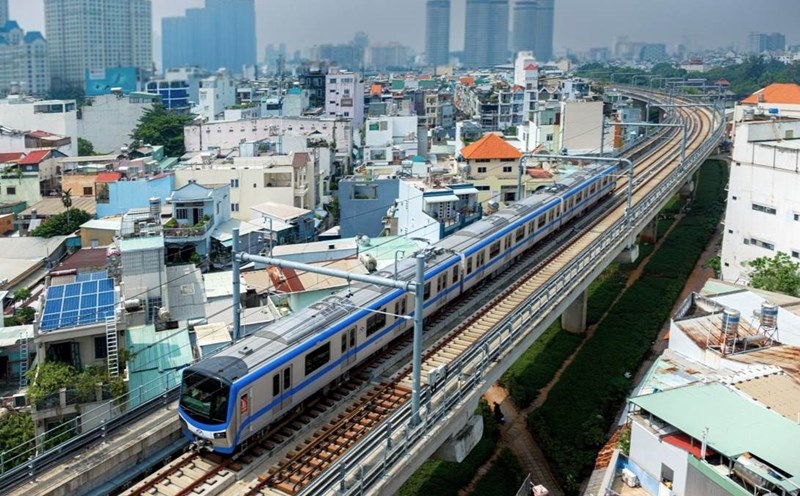Flexible farming to earn income all year round
Dak Lak's agricultural sector is facing many challenges from climate change and market fluctuations. To avoid the slogan " lose crop price, lose crop price", many households have shifted production direction, not depending on a single crop.
In Ko Tam hamlet (Ea Tu commune, Buon Ma Thuot city), Mr. Pham Minh Tinh has applied a cross-ultural garden model of more than 1ha with three main types of crops: coffee, pepper and durian. Thanks to that, his garden has a stable harvest all year round.
Previously, Mr. Tinh only grew coffee, and each crop year he could harvest 4.5 - 5 tons. However, unstable prices make income unstable. Recognizing the risks of monogamy, in 2018, he started intercropping pepper and durian.
Over time, durian develops, spreading leaves widely to help shield the sun, reduce soil temperature, limit water evaporation and block wind, and protect coffee during the rainy and stormy season. Pepper covers the ground, helping to retain moisture and reduce erosion, creating better conditions for coffee growth.
In addition to the benefits of improving the farming environment, intercropping also helps increase income and reduce risks. "After picking coffee, it's the pepper season, when all the pepper is gone, we harvest durian. Thanks to that, my family has a year-round source of income, not worrying about losing a crop of one type of tree, Mr. Tinh shared.

Corn silk reduces risks, increases income stably
Thanks to applying the cross-crop model, Mr. Ho Van Minh's family (Ea tar commune, Cu M'gar district, Dak Lak) reduces risks in agricultural cultivation. On an area of 1.5 hectares, he grows coffee intercropped with pepper and areca, ensuring a year-round income.
Every year, his family harvests more than 2 tons of coffee, about 1 ton of dried pepper, not to mention 100 areca trees that are about to produce fruit. With the current agricultural product price (co coffee over 120,000 VND/kg, pepper 160,000 VND/kg), his family's income exceeds 400 million VND/year.
Mr. Minh believes that intercropping is a sustainable direction, helping farmers reduce risks from market and weather fluctuations. "The price of agricultural products depends on supply and demand, the weather is increasingly erratic, easily causing crop failure. Therefore, you should not grow poison in a basket, avoid putting all your eggs in one basket," he shared.
Dak Lak is the coffee capital of the country with about 213,000 hectares. Of which, more than 40% of the coffee area has been diversified by the people.
Dak Lak province continues to encourage people to diversify crops in coffee gardens to increase income, protect the environment, and move towards sustainable agriculture to adapt to climate change.











